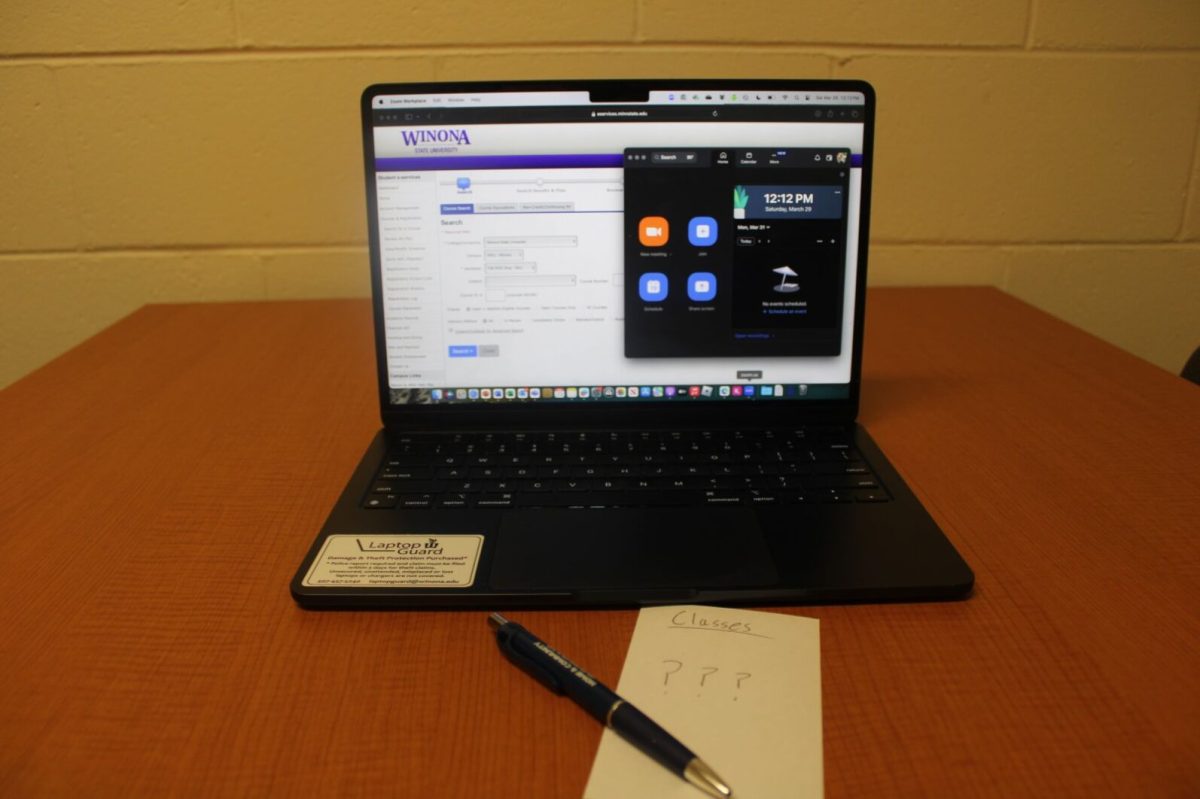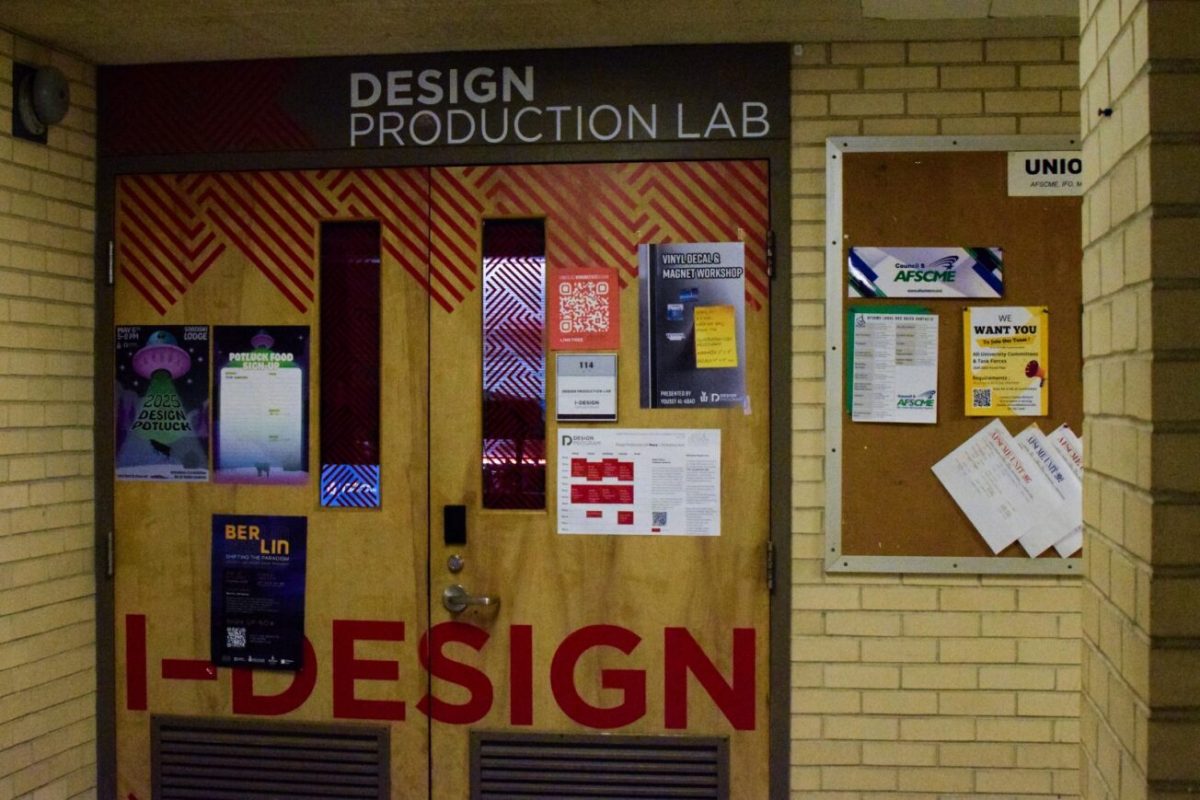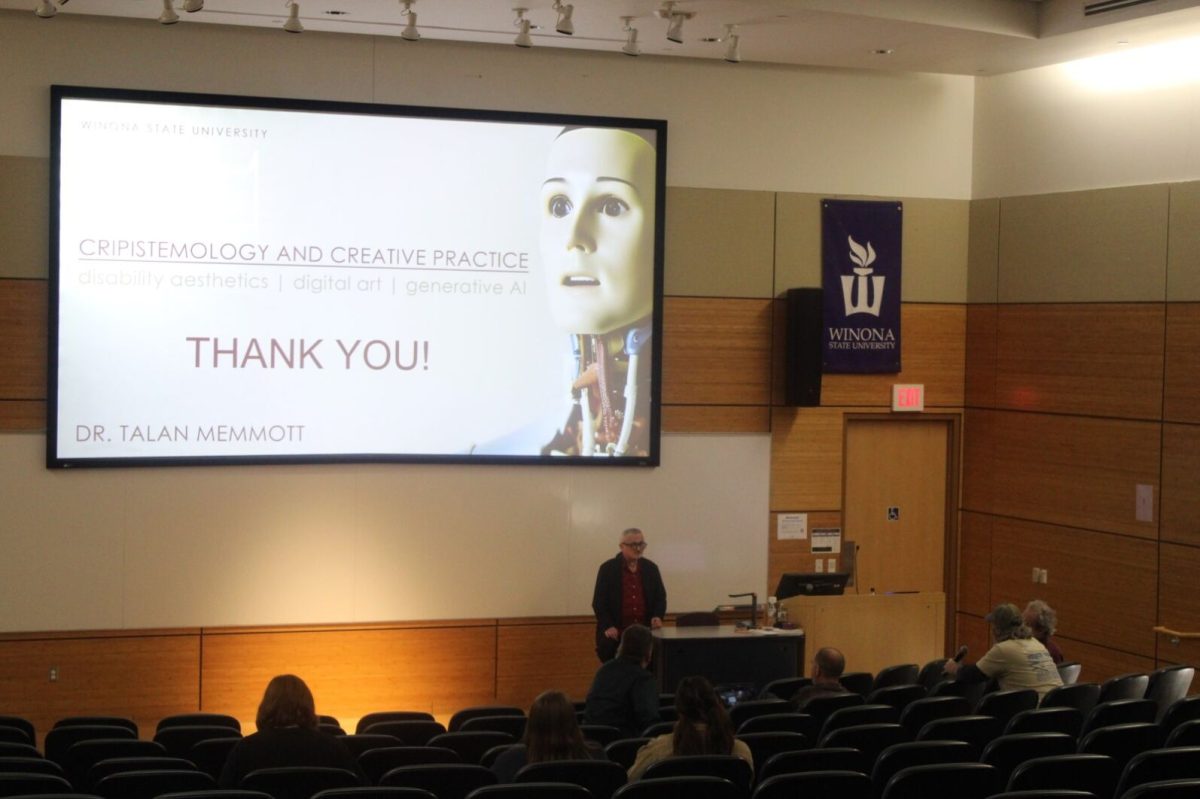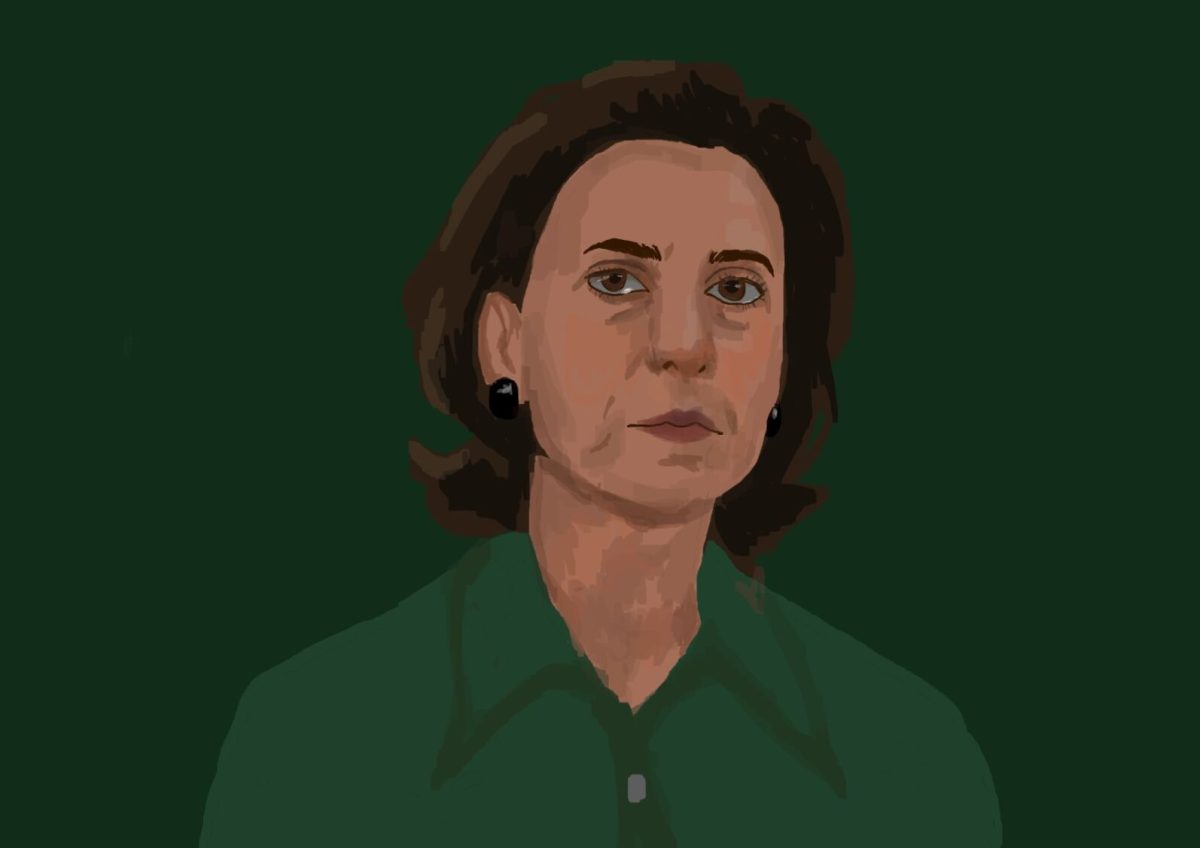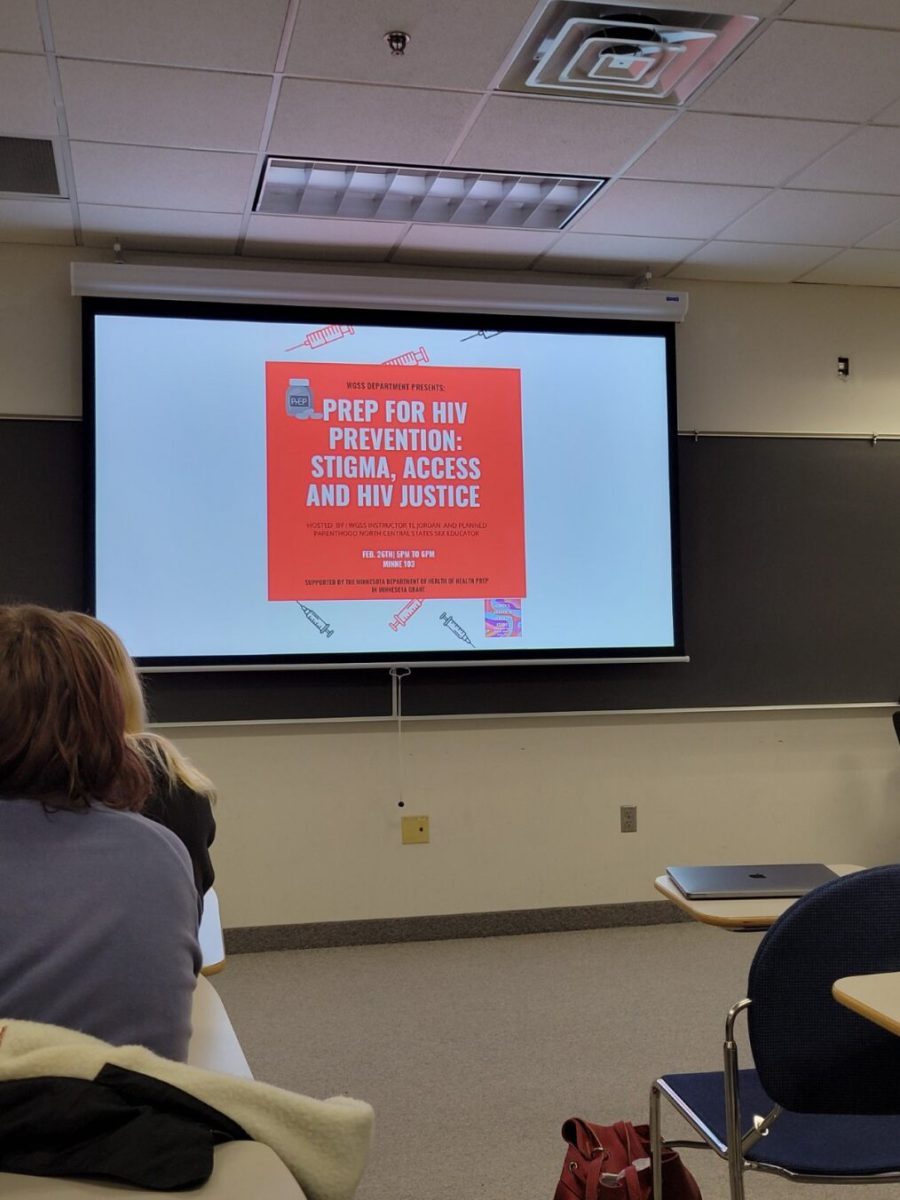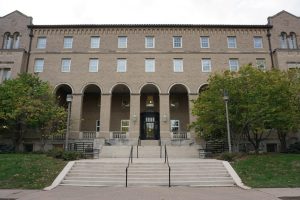Faculty discuss tenure criteria
Students weigh in on tenured professors

September 19, 2018
To tenure a professor means that they will always be guaranteed a job at their university. There are many different opinions on tenure, but one thing is agreed upon: the process of obtaining tenure is extremely long and nerve-racking.
According to Vice President of Academic Affairs and Provost, Patricia Roberts, the path to tenure is a long one. First, a professor is hired into a probationary line and starts work as an assistant professor. Over this five-year period, the professor is evaluated with the listed criteria and must prove that they are consistently working toward a certain level of working as a professional.
“Our professors are allowed to make a plan, which they then get approved by their dean. Once they get to their five years, they go through a tenure review process, in which they bring their data showing their growth in each of the five criteria to their dean, who then makes a recommendation for whether or not they should be tenured. The dean’s recommendation and all the information goes to the provost.”
I go through all the information and then make my recommendation to the president, who then does the same thing,” Roberts said. “The president is the ultimate person to make the decision of whether a person is tenured.”
The main purpose of tenure is academic freedom and research.
“Tenure in higher education has to do with academic freedom. The person is assured of still having their job, even if they are working with some delicate issues, particularly in research,” Roberts said.
Mark Norman has been teaching at Winona State University since 1996 and is the longest tenured professor in his department. He currently serves as chairperson of the departments of sociology, criminal justice and geography. He agrees that one of the purposes of tenure is personal growth for the professors. The university wants professors to achieve tenure, as it is such a great accomplishment.
“Any university…has an understanding that when [they] hire somebody, they want to hire that person for the long-term. Tenure is a process by which we all aspire to achieve and in a probationary line, you don’t really have a choice. You have your probationary time period and then you either go up for tenure or you leave,” said Norman.
For Norman personally, tenure reminds him of his own achievements.
“Tenure illustrates to me that I’ve achieved a high standing in the things that I am expected to do at the university: teach, engage in research, mentor my students and to provide service to my university and community…Tenure also has a status involved with it. In any profession one would want to be promoted, and achieving tenure shows that you have made achievements that are sufficient for promotion,” Norman said.
Norman’s experience of achieving tenure was “nerve-racking.”
“It was absolutely nerve-racking. I stressed over it for months and even years. Everything you do once you get into a probationary faculty position is centered around what you have to do to achieve tenure,” Norman said.
Most students at some point in their academic career will be taught by at least one tenured professor.
Charlie Egberg, a fifth-year student majoring in mass communication – journalism, was taught by a professor on tenure. He believes that professors should be on tenure, but that it should be more difficult to obtain.
“I think that professors should be [on tenure] because from my knowledge, tenure is to protect them if they are doing controversial work or studies, so they can’t be fired for that if it is unpopular. But I do think it should be harder (to obtain tenure). I feel like you should have to be doing research to be able to continue to be tenured,” Egberg said.
Egberg feels strongly about tenure because he was taught by a professor on tenure who he believed wasn’t properly teaching his students.
“You always hear students when they complain about a professor saying ‘they’re tenured, I can’t do anything’, and I think that’s really unfair to the students… It obviously depends on the professor, but in my experience, I feel like professors who are not tenured care a little bit more because they have more to lose,” Egberg said.
However, Mark Norman states that just because a professor has achieved tenure does not mean that their job is over. They still are able to move up in their department.
“Just because you’ve achieved tenure doesn’t mean that your story is over. You still have to perform at a high level. I believe the role even changes a bit. I have already achieved tenure, but now my role is different. I am now in positions not only in my department but in the university, that are somewhat leadership positions,” Norman said. “I chair my department and I mentor my junior faculty…my focus may not be on obtaining tenure anymore, now it is on mentoring my students and having a more significant role in the curriculum they are getting, and making sure that they can succeed once they leave (the university). After achieving tenure I felt more attached to my students. I now don’t have to worry about the things I had to do to achieve tenure.”
Norman also feels that because tenure is such an honor, very few professors are willing to abuse it.
“We are very fortunate at this university because we have this ability to interact and really work with our students. Any individual professor… it’s like anything else. I had fantastic professors. I’ve also had one or two that were terrible, but I think that you’re going to get that anywhere,” Norman said.
Roberts also said that she has seen very few professors abuse their tenure.




